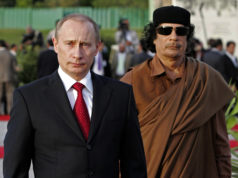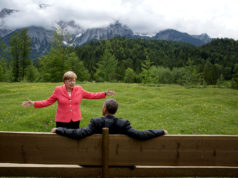Thousands of Tunisians protested Monday against what they consider a move by the government, led by the Islamist Ennahda party, to reduce women’s rights in the country. In a newly released draft constitution, article 28 considers women as complementary rather than equal to men, as is stated in Tunisia’s 1956 constitution. Activists speaking out against the draft argue that the language provides women with rights in terms of their relation to men, and not for their status as citizens of Tunisia.
Tunis is known for being at the forefront of women’s rights in the region. Monday’s protest was held on Tunisia’s National Women’s Day, which commemorates the adoption of the country’s Code of Personal Status (CPS) — the first law passed after Tunisia gained independence from France in 1956. The law banned polygamy, required consent from both parties for a valid marriage, and established a judicial process for divorce. Also ahead of its region, in 1959 women in Tunisia were given the right to vote and run for public office.

A photo circulating Facebook in celebration of National Women’s Day. Caption: She is Tunisia. (Photo: tunisialive) |
The draft constitution highlights the country’s continuing struggle in defining the role that Islam will play in Tunisia’s future. According to Myriam Ben Ghazi writing from Tunisia for the online site, tunisialive, the constituent assembly formed six committees to draft sections of the constitution. Within the committees, seats were delegated based on the percentage of votes each party received in the general elections — allowing Ennahda to hold a majority of seats in each committee and largely command the constitution’s outcome. The draft constitution also bans normalized relations with Israel.
Human rights organizations recently called out Tunis for its seemingly increase in restrictions on individual freedoms and rights. Journalist Sofiene Chourabi and his friends were arrested last week for being drunk in public and attacking public morality after Chourabi called for a protest against what he argues are restrictions on public freedoms by the Ennahda party. The arrests came soon after Ennahda submitted a draft bill to the constituent assembly criminalizing offences against what it deems “sacred values”.
The articles in the draft constitution are not yet law; once approved by another parliamentary committee, the new constitution will be put to a public referendum. Once again, it will be up to Tunisians to determine their future.





